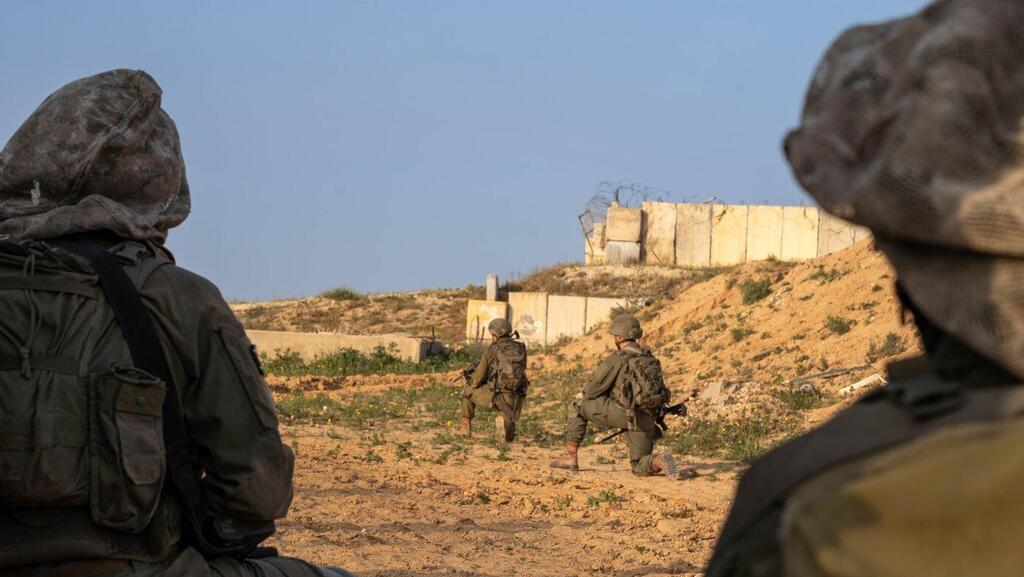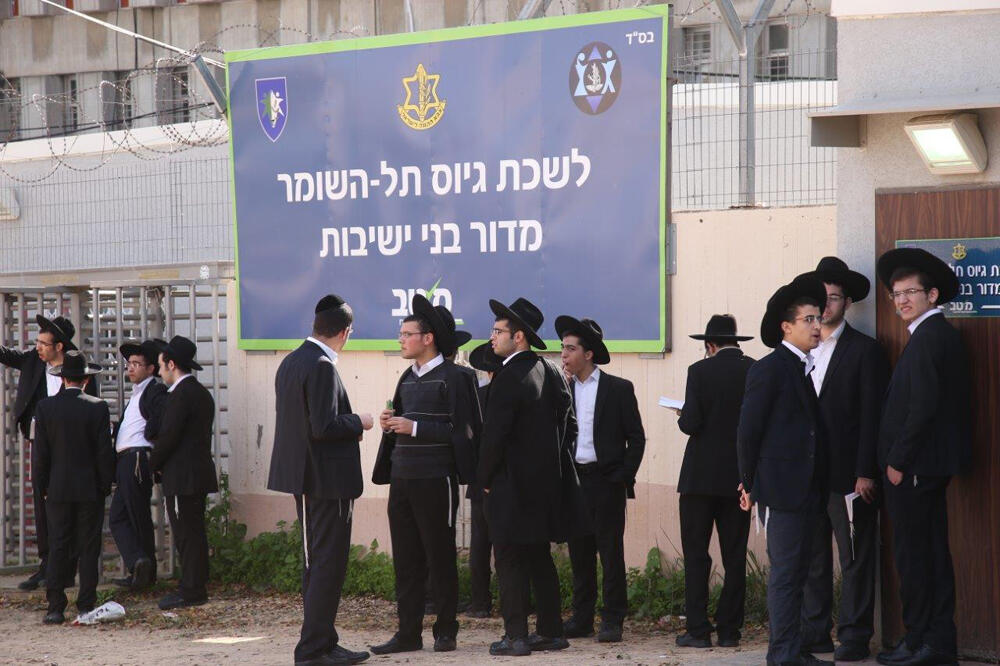Getting your Trinity Audio player ready...
Amid the ongoing political upheaval following Defense Minister Yoav Gallant's declaration that he won't advance the "Draft Law" without the full agreement of the coalition, the military is compiling data to illustrate the severe manpower issue, a matter that is independent of political considerations or demands for equitable service. The situation is simply not compatible with the current threat landscape and is distinctly unfavorable.
Read more:
As first reported on Friday morning on Ynet and "Yedioth Ahronoth", IDF urgently requires an additional 7,000 soldiers, with half of these intended for combat roles. It's crucial to note that this figure is over and above the soldiers already slated for recruitment in upcoming cycles. Further, IDF is calling for another 7,500 officer and non-commissioned officer positions, while the treasury is currently only approving 2,500. These unprecedented figures underscore the shock experienced by the IDF in the wake of nearly 150 days of conflict, which began with substantial losses on October 7.
Approximately 582 soldiers have fallen in battle, and several more are physically and psychologically wounded, to the extent that they are unable to return to their roles. A significant number of commanders, who led their troops as expected, also fell in the battles, necessitating training for their replacements. The deployment of special units in the conflict will also impact the state of fighters there, since the training in these units is more intricate and protracted.
The Engineering Corps, which played a pivotal role in the successes in Gaza, will be reinforced with an additional battalion. Furthermore, reserve platoons that supplanted regular platoons in each brigade of the Armored Corps will revert to being comprised of mandatory service soldiers.
The Air Force is also gearing up for expansion, primarily in the air defense system, with the addition of several new Iron Dome batteries. Concurrently, ground defenses against sudden attacks will be bolstered, reflecting one of the lessons learned from the vast scale, intensity, and audacity of the Hamas operation on October 7.
In the war, for instance, the Medical Corps suffered the loss of 38 medical personnel, including doctors, paramedics, and medics. In response to this, the Chief of the Logistics Division has called for the recognition of all who have been providing combat support inside Gaza from the first day of the conflict as combat support personnel, an identification that would lead to an adjustment in their pay. These measures, which will necessitate public sacrifice given that the required funding does not simply materialize out of thin air, also underscore the profound failure that has brought us to our current predicament.
It's fair to say that the onus lies with the political and military leadership from the start of the previous decade, during which plans for cutbacks and service reductions were initiated.
It's noteworthy that Benjamin Netanyahu served as the Prime Minister for the majority of these years and under his administration, all the Defense Ministers and Chiefs of Staff, including the incumbent, consented to these and other plans that hindered Israel's capacity to handle Hamas's initial onslaught, and have significantly complicated the situation in a multi-front war. However, the current situation necessitates not just investigation and learning lessons, but also taking action. As such, it would be irresponsible not to recognize the impossibility of expanding the army without enhancing the burden of equality as it pertains to Haredi Jews.
The statistics are clear: Only 1,200 ultra-Orthodox individuals are currently enlisted, out of an annual potential pool of 12-13 thousand. By a generous estimate, half of these individuals are not religious scholars and could be recruited immediately without the IDF needing to create new infrastructures for them: they could fill the existing frameworks for ultra-Orthodox that have been vacated. The argument that the army is not ready for this is unfounded. Moving forward, there will certainly be a need to develop new frameworks, a reality the IDF acknowledges and is prepared to negotiate, as the army doesn't have the privilege of avoiding this.
It's repeatedly stressed within the IDF that their perspective isn't about "equality in burden" in the ethical and moral sense: to deliver the essential service of "security", the IDF requires certain resources, including a significantly larger number of soldiers. "Therefore," a high-ranking officer in the General Staff asserts, "even monetary compensation won't be sufficient. We genuinely require a larger military force."




